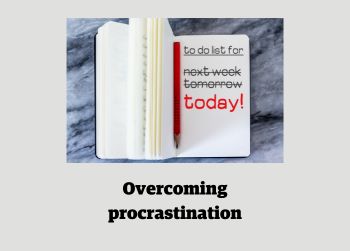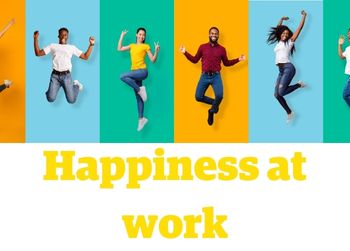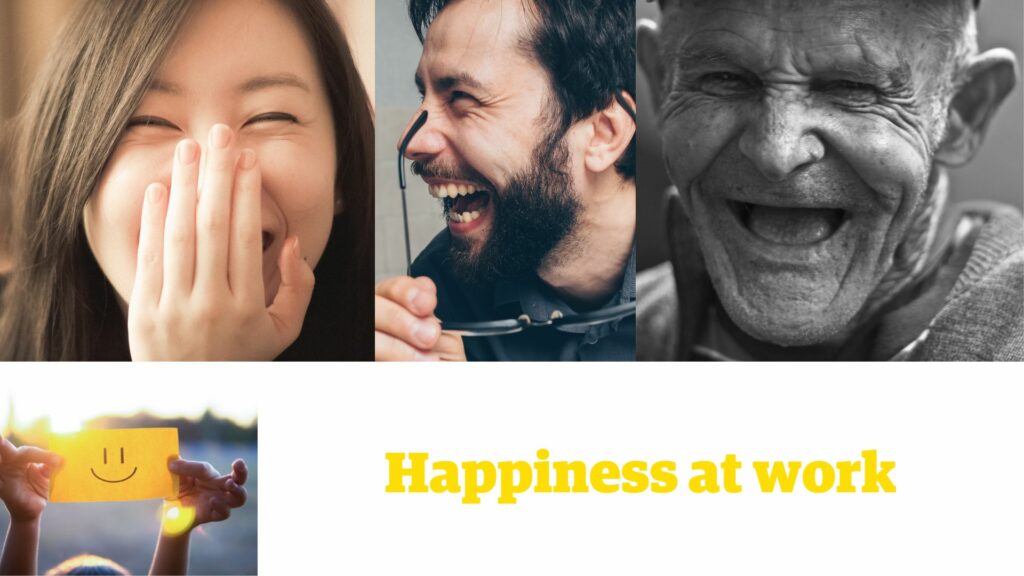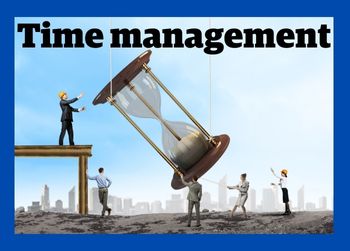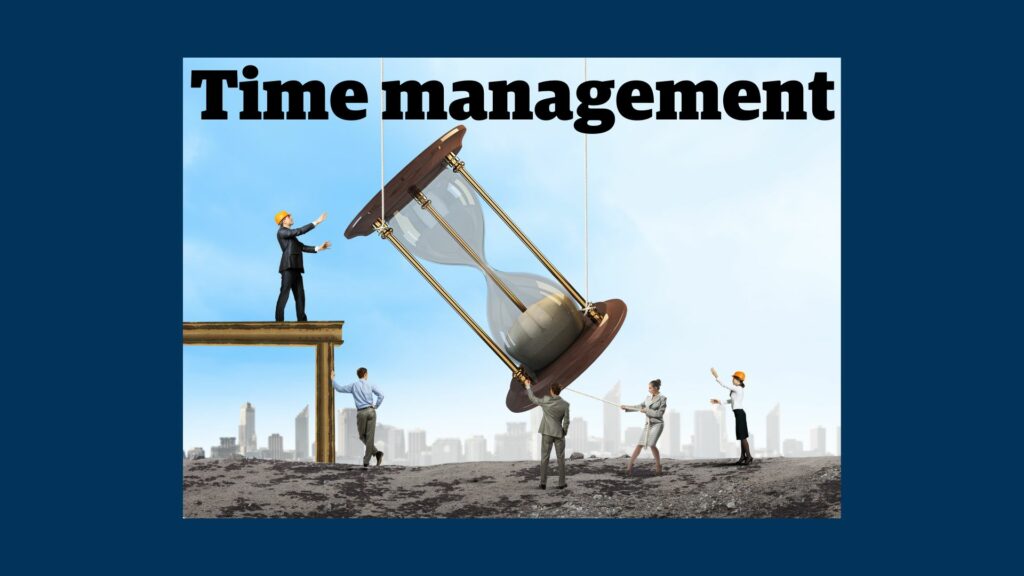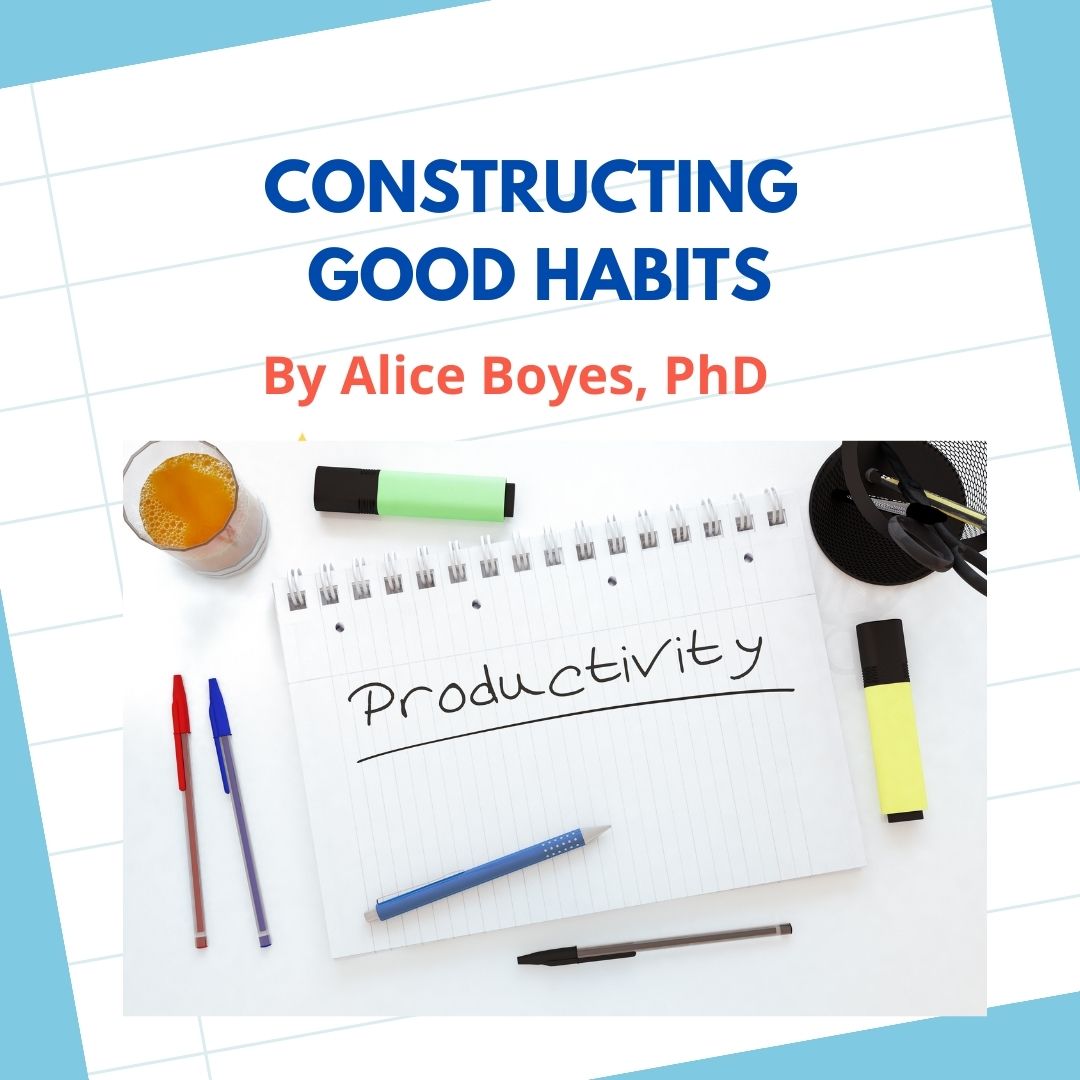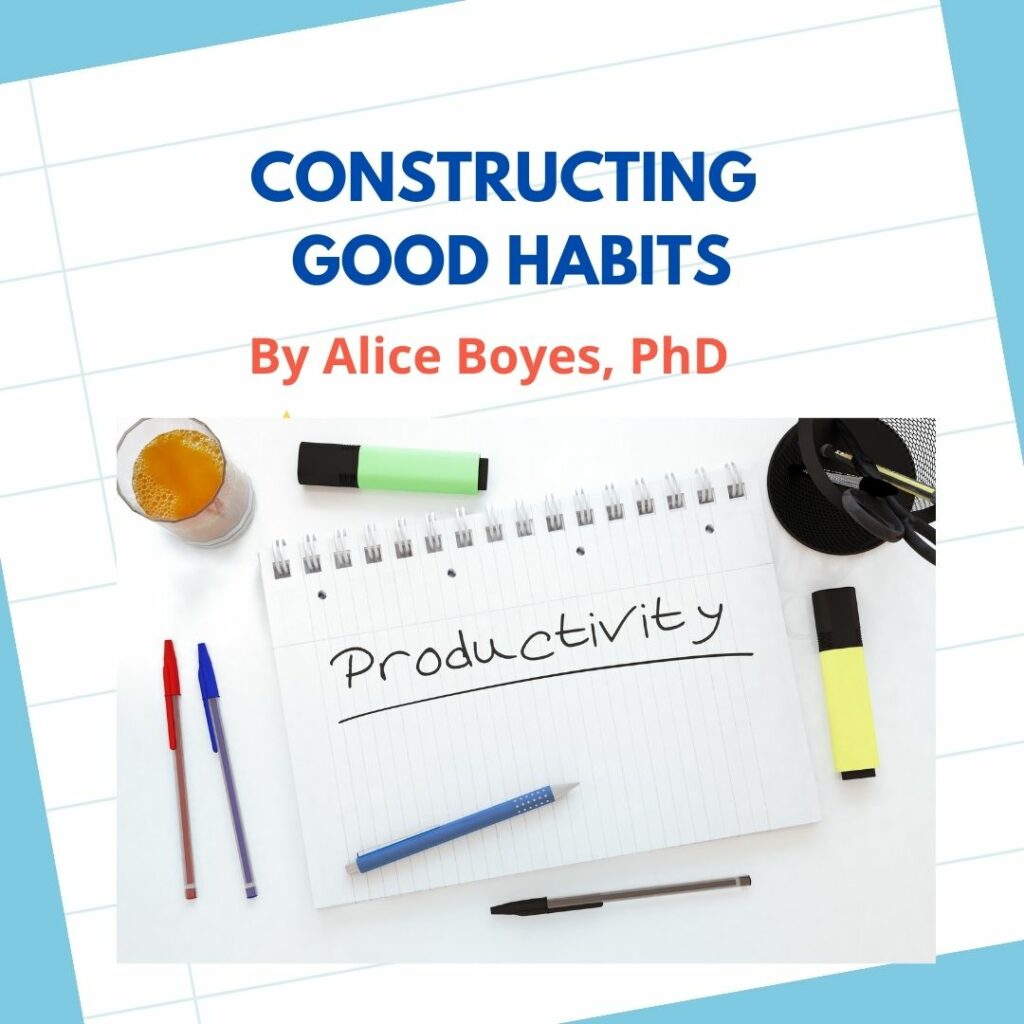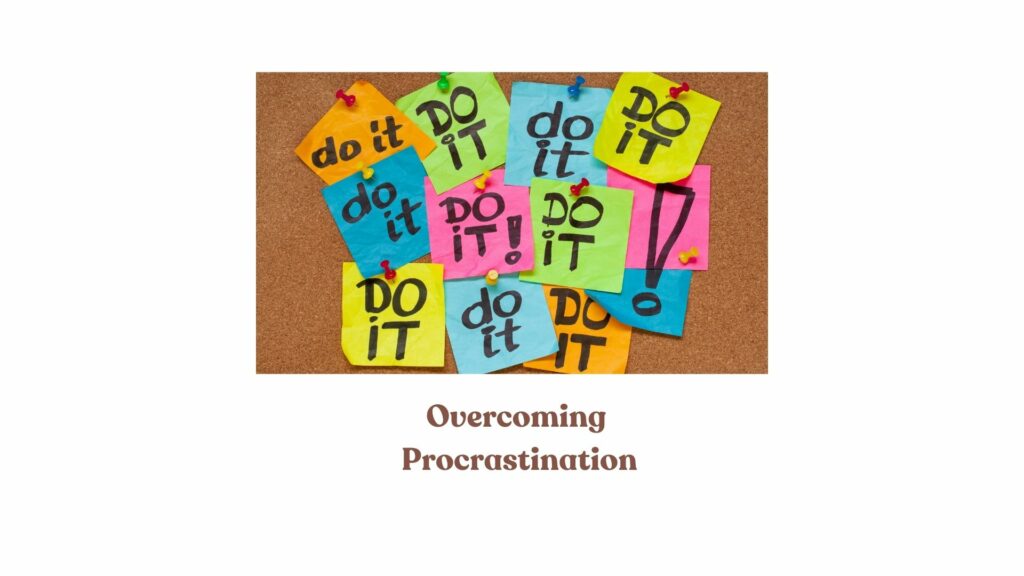
Most of us do it – put off a job that is perceived to be unpleasant, until the very last minute. Then it’s a panicked scramble as we try to get it completed.
It might be writing a report, a dreaded trip to the dentist or cleaning the car. If we can delay tackling it, we will.
I recall pre-exam study periods when at university, in which cleaning out the fridge and investigating what alien life forms had taken up residence in sealed containers, assumed an urgency that surpassed that of revising for tomorrow’s exams.
Yep – I procrastinated and would then be studying in a panic until shortly before entering the exam room.
So why do we put off doing a task we find uninteresting or unattractive all the while knowing that at some point we are obliged to tackle it?
With over 4.4 million views this short Ted Talk educational video examining Why you procrastinate even when it feels bad, obviously speaks to a lot of people.
In another Ted Talk social psychologist Ayelet Fishbach gives a presentation offering insights on the science of motivation along with tips and cognitive tricks to help you reach your goals while staying happy, healthy and engaged.
Fishbach is also the author of the book Get it done : surprising lessons from the science of motivation held in the Wellington City Libraries collection.
Get it done : surprising lessons from the science of motivation / Fishbach, Ayelet
“Based on research from the field of motivation science, this new framework for setting and achieving goals discusses how to attack the “middle problem,” battle temptations, and use the help of others.” (Catalogue)
Also available as EBook Overdrive and as an audiobook on CD
Here’s some further suggestions from our collection to help you overcome procrastination and motivate you to get things done.
Soon : an overdue history of procrastination, from Leonardo and Darwin to you and me / Santella, Andrew
“In the tradition of cultural historians like Sarah Vowell and Jim Holt comes a galvanizing meditation on the perils and pleasures of procrastination. While others are busy leaning in, crushing it, and trying to work smarter, faster, and better, Andrew Santella stops to ask why so many of our greatest inventors, artists, and scientists have led double lives as committed procrastinators. Santella examines great procrastinators from Leonardo da Vinci and Frank Lloyd Wright to Charles Darwin and prophets from the Old Testament. He also explores the modern-day ‘cult of efficiency’–its gurus, principles, and promises. Ultimately, Santella seeks to answer the following questions: Can procrastination lead to innovation? Can we draw a connection between delay and brilliance? And why do we often equate procrastination with laziness? A self-proclaimed procrastinator, Santella writes with candour and wit about his own habits, from painting a radiator to listening to sports talk radio just to avoid writing. [This] is a book for anyone who has ever put off a task, convincing the reader that time is our most valuable resource and ‘wasting’ it just might be the key to a happy life.”–Jacket.” (Catalogue) Also available as EBook Libby
Decision time : how to make the choices your life depends on / Alison, Laurence
“Should I change careers? Is it time to end my relationship? Can I move halfway across the world? We have to make choices everyday, big and small, but it’s the life-changing ones that often cause us to freeze or react too quickly, without thinking. What can we do differently? Laurence Alison and Neil Shortland have spent over 20 years helping soldiers, police officers, doctors and other professionals in high-stakes environments make tough decisions when lives are on the line. In Decision Time, they show us how those same decision-making techniques apply to everyday life, whether that’s deciding to take a new job or change career later in life, end a relationship, move across the world or declaring your undying love for your best friend. With tips, studies, interviews and observations from their training with police officers together with role-play scenarios for you to try, this book will help you identify and fight off the common enemies of good decision-making – inertia, procrastination and indecision – and empower you to make the choices that matter the most”–Publisher’s description.” (Catalogue)
Also available as EAudiobook Overdrive and EBook Overdrive
Big dreams, daily joys : set goals, get things done, make time for what matters / Cripe, Elise Blaha
“For those who feel overwhelmed by endless to do lists and the stresses that come with daily life, here is an empowering guide to establishing healthy productivity habits so that it’s easy (and fun!) to accomplish long-term goals. Brimming with simple-to-follow techniques, rituals, and exercises for accomplishing day-to-day tasks and making progress on bigger goals, Big Dreams, Daily Joys offers tips on how-to organize a productive day, overcome the urge to procrastinate, make space for creativity, and achieve a healthy work-life balance. For anyone who is tackling a creative project, running their own business, or simply trying to manage time more efficiently, this is the ultimate handbook to getting things done with clarity, joy, and positivity.” (Catalogue)
Start now, get perfect later : how to make smarter, faster & bigger decisions & banish procrastination / Moore, Rob
“Hardly anyone gets it right the first time, but many of us are crippled by indecision and fear of failure. The desire to get it right can inhibit us from getting started. In this book Rob Moore shows that the quickest way to perfect is starting right now and improving as you go. This book will show you how to launch your business or idea, begin the next phase of your career, and overcome self-doubt – right away. Get perfect later, get started now.” (Adapted from Catalogue)
The end of procrastination : how to stop postponing and live a fulfilled life / Ludwig, Petr
“Learn how to stop procrastinating. A science-based toolset: Based on the latest research, The End of Procrastination synthesizes over one hundred scientific studies to create a program that is based on the way our brains actually work. By understanding exactly why procrastination happens and how our brains respond to motivation and self-discipline, the book provides readers with the knowledge to conquer procrastination on an everyday basis. The keys to overcoming procrastination are in this getting-things-done book: Insight into over 120 scientific studies; Eight clear, science-based and successful tools; Quick daily worksheets to shift your perspective; To-do lists that actually help you get things done; Everything you need to change the way you manage your time and live your life.” (Catalogue)
What motivates getting things done : procrastination, emotions, and success / Lamia, Mary C.
“Mary Lamia explores the emotional lives of people who are successful in their endeavours–both procrastinators and non-procrastinators alike–to illustrate how human motivation works and how to make the most of it. She illustrates how so-called negative emotions like distress, fear, and shame can drive the achievement of goals.” (Catalogue)
Start right where you are : how little changes can make a big difference for overwhelmed procrastinators, frustrated overachievers, and recovering perfectionists / Bennett, Sam
“Start Right Where You Are is an easy-to-read, easy-to-do guidebook for anyone who wants to change their life but doesn’t know where or how to begin. Her gentle-kiss-on-the-cheek and loving-thwack-upside-the-head attitude gives us what we all need: inspiration, shortcuts, and breathing room.” (Catalogue)
The procrastination equation : how to stop putting things off and start getting things done / Steel, Piers
“Dr. Piers Steel explains why we procrastinate – why we knowingly and willingly put off a course of action despite recognizing we’ll be worse off for it. What’s more, his study shows that despite procrastination making us poorer, fatter and unhappier, we’re putting things off like never before, procrastination is on the rise.” (Catalogue)
If you would like further information please contact the Prosearch team at the library. We can help you find information across a range of perspectives and resources. All enquiries are treated in confidence.


